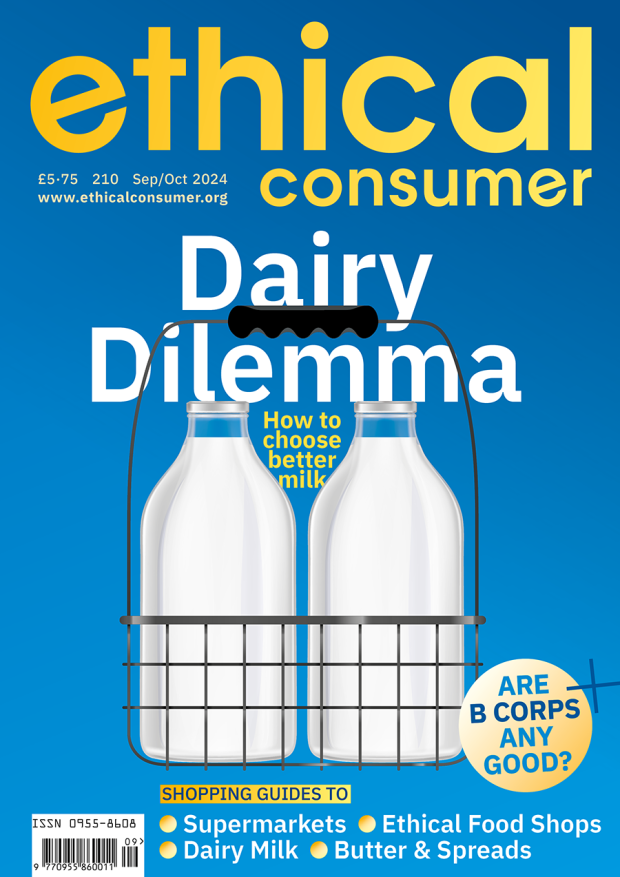Supermarkets are associated with a lot of unethical practices, yet they’re hard to avoid, with most of us using them regularly. Product ranges of supermarkets are vast, from clothes to banks, phone contracts, and furniture.
But it’s food that most of us depend on them for, and that’s what we’ve focused on in this guide.
Finding the most ethical supermarket
Although this guide doesn't have many high scoring brands, there are some clear differences between those at the top and those at the bottom of the ethical scoretable.
If you do have a choice of supermarkets locally, it's possible to make a difference on a number of ethical issues, like workers' rights, animal welfare, packaging and climate action.
In this guide we don’t shy away from the troublesome practices of UK supermarkets. Examining these makes it clear why it is better to opt for local wholefood shops, veg box schemes, and other ethical alternatives if possible (see our new guide on ethical food shops for these alternatives).
But we also provide tips on how to make more social and environmental choices if you do buy from the mainstream supermarkets, and draw attention to brands with slightly better practices and product ranges.
And if you want to move away from the big brands, look at our new guide on eco supermarkets which covers mainly online ethical companies.
Which supermarkets are in this guide?
We have included all the mainstream UK supermarkets from the budget brands like Aldi and Lidl, to multinational companies like Asda and Tesco, along with other brands like Co-op, Iceland, Morrisons and Sainsbury's, and the slightly pricier Marks & Spencer and Waitrose.
For the first time we've also included Amazon Fresh in the supermarket guide. But as our ongoing boycott campaign against Amazon explains, it's not a brand we recommend!
And alongside this guide to mainstream supermarkets, we have a new guide to ethical food shops, where nearly all of them score more highly than any of the supermarkets here!








